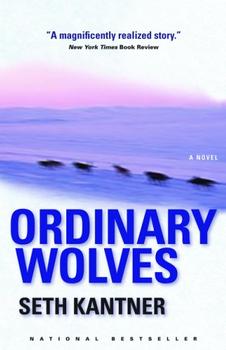Reading Guide Questions

Please be aware that this discussion guide will contain spoilers!
- In the beginning of the novel, Cutuk, Iris, and Jerry express great excitement whenever they hear the sounds of "travelers" approaching. How is the idea of "traveler" sounds returned to later in the book? How would you describe the change in feelings such sounds elicit in Cutuk at these later points?
- Throughout the novel, and especially during "Part I: The Land," Cutuk wants very much to become Eskimo. One outward, though unspoken, manifestation of this desire is his habit of "flattening his nose." Another is his repeated wish for the material things--the nylon jackets and snowgos--that the younger Eskimos in Takunak desire. But what he has learned from both Abe and Enuk is how to live the way Eskimos used to live. How, then, does he negotiate these two worlds as a child? How does he negotiate them after he's grown? And what way of being in the world does he ultimately adopt?
- Why is Abe in Alaska? And how is it that he--a white man from the Lower 48--comes to embody "native" more than the native Eskimos themselves?
- Why did Cutuk's mother leave? What effect does her leaving have on him? On Abe? Jerry? Iris? Why does the family so rarely speak of her?
- Cutuk, Iris, and Jerry share an interesting relationship with their father, who is "like an older brother, our best friend, no dad at all," and whom they address as Abe, rather than "Dad." Why has Abe chosen to have this kind of brotherly relationship with his children, rather than what we might consider a more traditional parent-child relationship? What are some of the effects of such a relationship?
- What are some of the childhood values and lessons Cutuk learns from Abe? How do these values serve him once he goes to Anchorage? How do they fail him? Which ones does he hold onto? Which ones does he let go?
- Discuss Cutuk's relationship with his two siblings, Jerry and Iris. Why does Iris play a much greater role in Cutuk's life than Jerry seems to? What significance is there in Jerry's reappearance, after a long, five-year absence? How do these two relationships compare or contrast with Cutuk's relationship with his mother and father?
- What is the importance of Enuk in Cutuk's life? What impact does Enuk's disappearance have on Cutuk?
- How does Cutuk respond to Iris's leaving? Does her departure in any way reflect the mother's much earlier departure? In what ways?
- Why does Cutuk feel the need to show off for Iris when she returns to Takunak? What changes for Cutuk because of the accident?
- Why, after initial resistance, does Cutuk finally decide to go to Anchorage? What does he hope to accomplish there? What lessons does he ultimately learn?
- What surprises Cutuk about his interactions with white people--"his people"--in Anchorage? If he doesn't belong to them, and he doesn't belong to the Eskimos, to whom does he belong?
- Why does it become so important to Cutuk to learn to fly his grandfather's plane?
- What is Cutuk's attitude toward money? What role does it play in his life?
- Discuss Cutuk's relationships with the two women in his life, Dawna and Cheryl. What significance do each of these relationships have? How do his feelings for Dawna change--or do they change?--from childhood to adulthood?
- What is the relationship between Cutuk's story and the short passages about the wolves? What does it mean that most of these passages involve scenes of the wolves being hunted down and killed? What is the significance of the scene in which Cutuk and one of the wolves see each other?
- What is Cutuk's reaction to the state of things in Takunak--the drinking, the smoking marijuana, the snowgoing, the outsiders' proposal for a Cultural Edification Project (teaching the Eskimos how to be Eskimo)? What does Cutuk want to happen?
- Why does Lumpy kill himself? Why has suicide become such a common occurrence in Takunak?
- What does Cutuk mean when he says, "I'm not going to be a dog. I'll take the wolf's deal"?
Unless otherwise stated, this discussion guide is reprinted with the permission of Milkweed Editions.
Any page references refer to a USA edition of the book, usually the trade paperback version, and may vary in other editions.

 Book Reviewed by:
Book Reviewed by:



